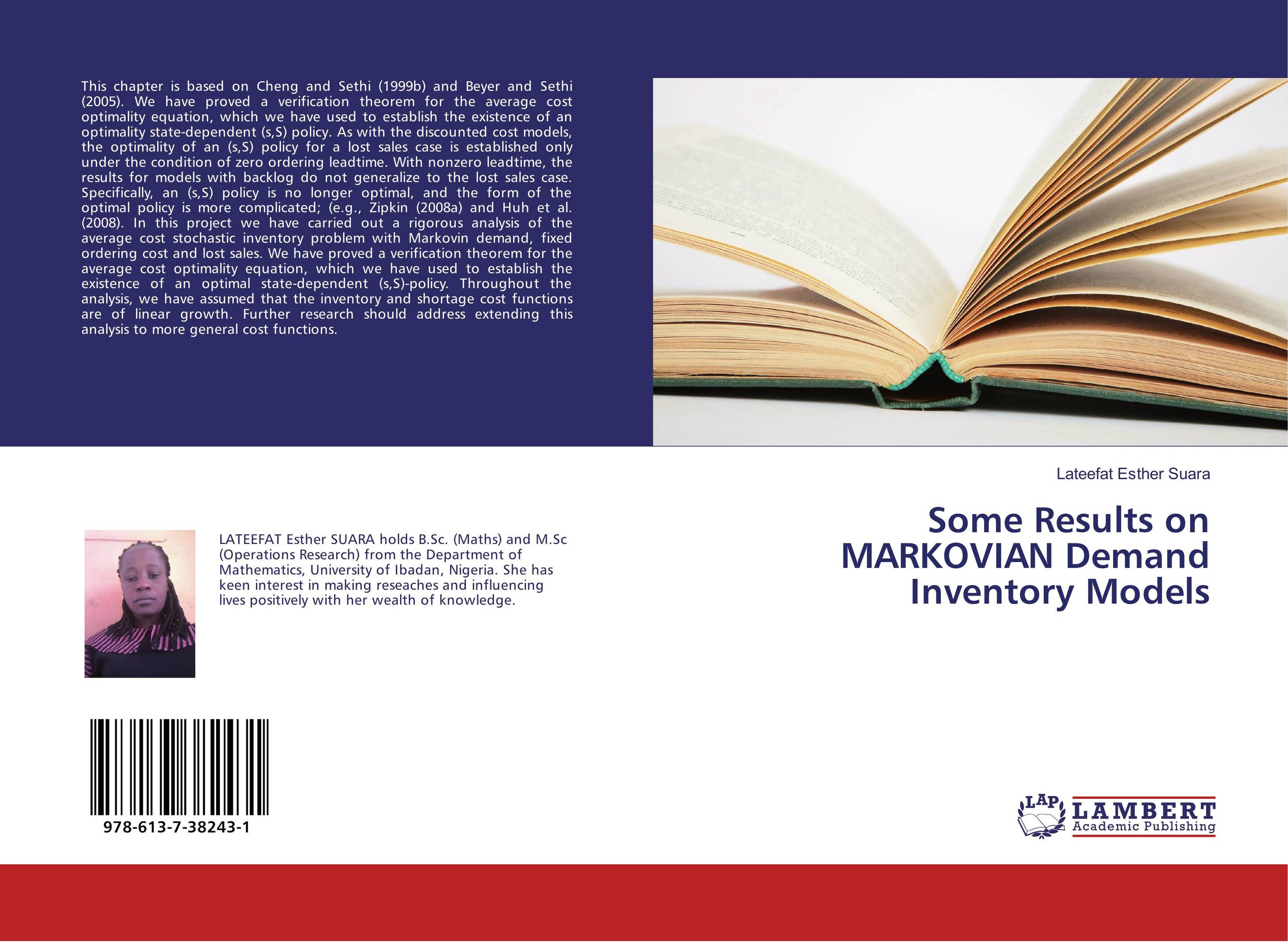| Поиск по каталогу |
|
(строгое соответствие)
|
- Профессиональная
- Научно-популярная
- Художественная
- Публицистика
- Детская
- Искусство
- Хобби, семья, дом
- Спорт
- Путеводители
- Блокноты, тетради, открытки
Some Results on MARKOVIAN Demand Inventory Models.

В наличии
| Местонахождение: Алматы | Состояние экземпляра: новый |

Бумажная
версия
версия
Автор: Lateefat Esther Suara
ISBN: 9786137382431
Год издания: 2018
Формат книги: 60×90/16 (145×215 мм)
Количество страниц: 72
Издательство: LAP LAMBERT Academic Publishing
Цена: 21699 тг
Положить в корзину
Позиции в рубрикаторе
Сферы деятельности:Код товара: 184363
| Способы доставки в город Алматы * комплектация (срок до отгрузки) не более 2 рабочих дней |
| Самовывоз из города Алматы (пункты самовывоза партнёра CDEK) |
| Курьерская доставка CDEK из города Москва |
| Доставка Почтой России из города Москва |
Аннотация: This chapter is based on Cheng and Sethi (1999b) and Beyer and Sethi (2005). We have proved a verification theorem for the average cost optimality equation, which we have used to establish the existence of an optimality state-dependent (s,S) policy. As with the discounted cost models, the optimality of an (s,S) policy for a lost sales case is established only under the condition of zero ordering leadtime. With nonzero leadtime, the results for models with backlog do not generalize to the lost sales case. Specifically, an (s,S) policy is no longer optimal, and the form of the optimal policy is more complicated; (e.g., Zipkin (2008a) and Huh et al. (2008). In this project we have carried out a rigorous analysis of the average cost stochastic inventory problem with Markovin demand, fixed ordering cost and lost sales. We have proved a verification theorem for the average cost optimality equation, which we have used to establish the existence of an optimal state-dependent (s,S)-policy. Throughout the analysis, we have assumed that the inventory and shortage cost functions are of linear growth. Further research should address extending this analysis to more general cost functions.
Ключевые слова: Random Walk, Mark of chain, Stochastics Models, Constraints, Cost structure, demand, LEAD TIME, Production Cost, fixed ordering or setup cost, holding cost, stock out cost, review time, excess demand, deteriorating inventory



